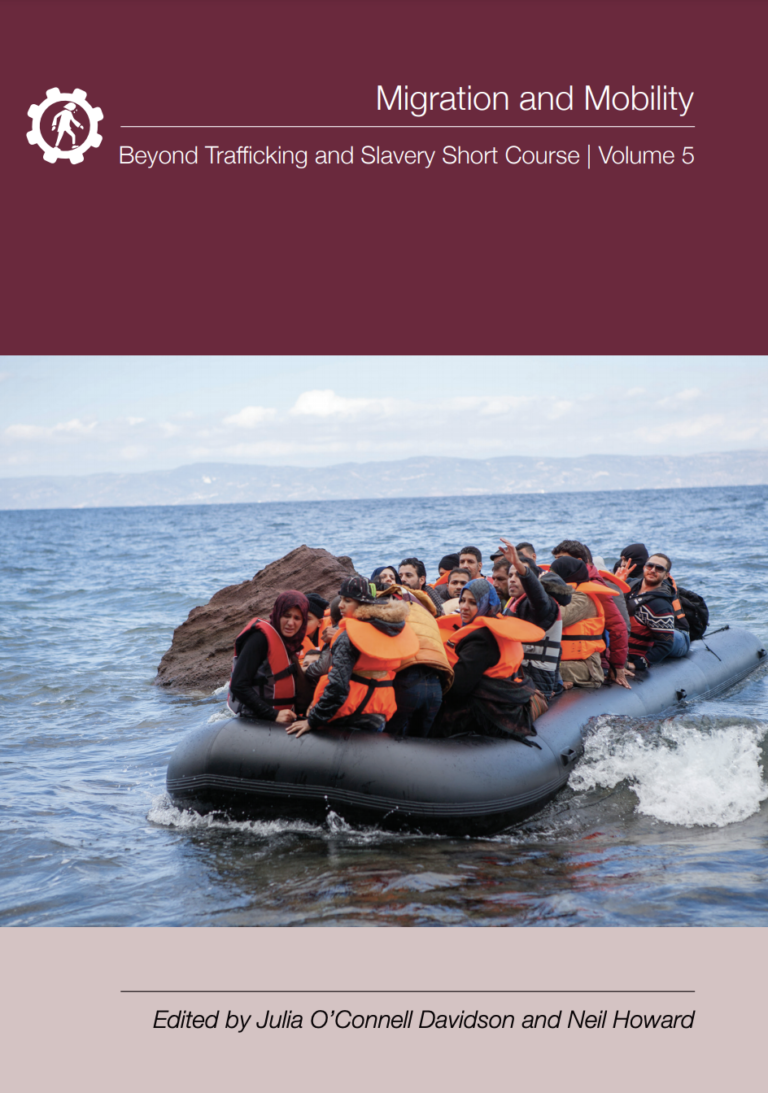Edited by Julia O’Connell Davidson and Neil Howard.
This is the fifth volume of the series Beyond Trafficking and Slavery Short Course.
Mobility is and always has been an essential part of humanity’s economic, social, cultural and political life. To be able to move freely is a good. Yet in our unjust world, it is also an unearned and unequally distributed privilege. This volume reflects on that privilege, and on the suffering that results when states restrict access to it. The articles included here will explode the spurious contemporary binary between ‘smuggling’ and ‘trafficking’, and will argue that anti-trafficking discourse hides more than it reveals. Most crucially, it hides how state restrictions on the freedom of movement are the true threat to human wellbeing.

